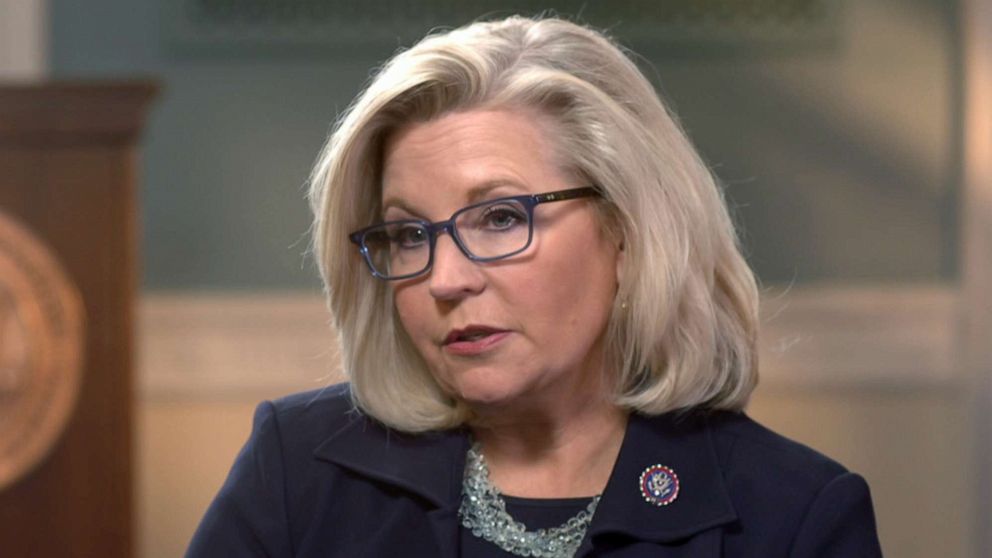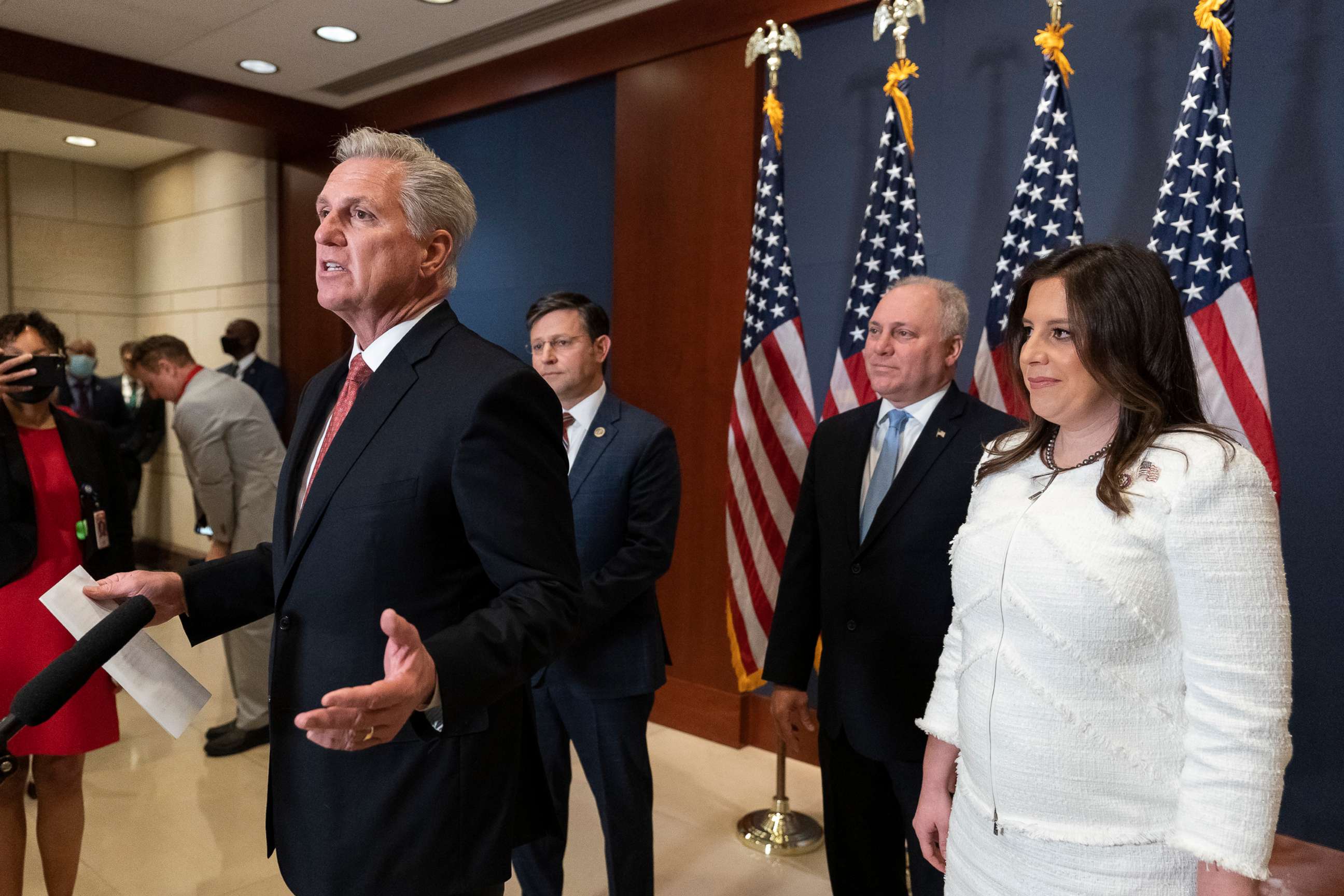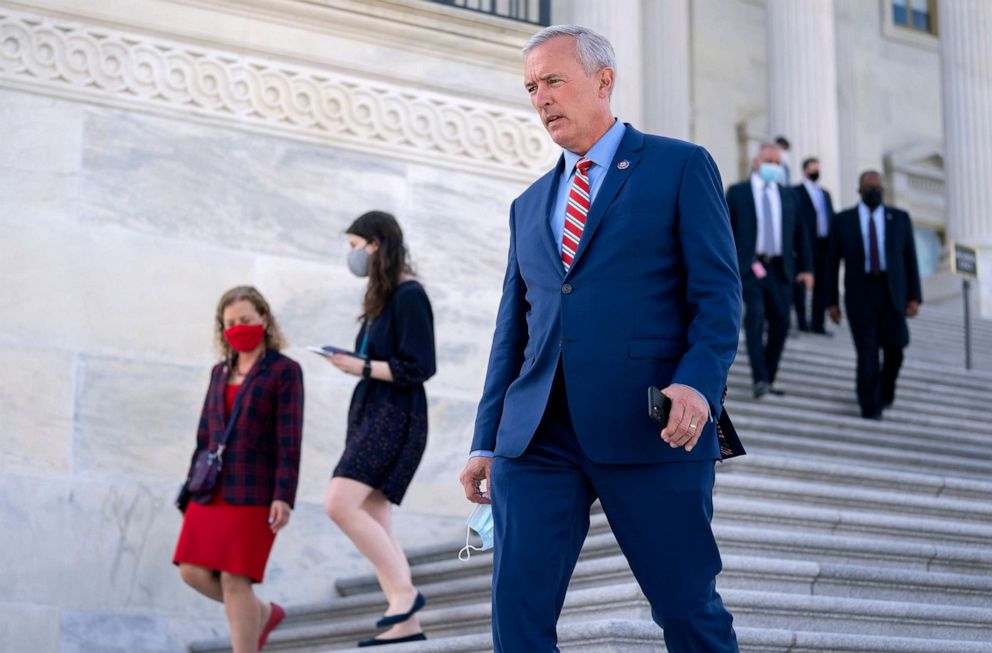Trump leaves GOP paralyzed, in Congress and up and down ballots: ANALYSIS
Trump may have left office in disgrace, but since then his influence has grown.
When former President Donald Trump wanted to express his opposition to a Jan. 6 commission this week, he included a line in the statement his team blasted out that probably wasn't necessary: "Hopefully, Mitch McConnell and Kevin McCarthy are listening!"
They had heard the message by then, of course. McCarthy, the House Republican leader, had already come out against the commission one of his lieutenants had helped craft. In case Trump missed that, McCarthy went on Fox News Tuesday night to slam it as "driven solely by politics and Nancy Pelosi."
McConnell, the Senate GOP leader, announced his opposition the following day, after previously saying his caucus was "undecided." That position alone all but dooms attempts to create an independent commission to examine the attempted insurrection at the Capitol -- an event that both McCarthy and McConnell have said the former president deserves at least some blame for.

McCarthy and McConnell are arguing that Democrats would have too much sway over the commission, though it was modeled on the bipartisan 9/11 Commission and crafted with extensive GOP input.
They might also argue that they're representing their members' or their party's wishes in backing up Trump. On that, they wouldn't be wrong.
Trump may have left office in disgrace, but the four months since then have seen his influence grow. Just as this week saw the likely demise of the commission that would scrutinize both Trump's role in instigating violence and in the slow federal response to quelling it, last week saw the House GOP cast Rep. Liz Cheney, R-Wyo., out of leadership for her insistence on telling the truth to combat Trump's election lies.
"We as a party are in a situation with respect to the former president that is really dangerous," Cheney warned on ABC's "This Week" after her ouster.

It's not just in the halls of Congress where the consequences of Trump's dominance are evident. Dozens of states have enacted or are close to finalizing voting restrictions inspired, at least in part, by Trump's "big lie" about 2020.
In Arizona, GOP state lawmakers are still pushing a privately run "audit" of elections that even some Republicans fear is becoming a circus. The process -- which involves, among other things, looking for bamboo fiber traces to bolster a conspiracy theory involving ballots that came from Asia -- has been derided by one local Republican official as a "sham" and another as a "mockery."
Meanwhile, Trump loyalists are filling out 2021 and 2022 ballots. Virginia Republicans last week nominated a gubernatorial candidate whose focus on "election integrity" won him a quick Trump endorsement, after a primary that pit candidates who are -- in the words of one analyst -- "Trumpy, Trumpier and Trumpiest."
There will be more primaries like that. Rudolph Giuliani's 35-year-old son, Andrew, is running for governor of New York, in a race that will also feature Trump-backing Rep. Lee Zeldin, R-N.Y.
Mark McCloskey, the St. Louis lawyer who waved a rifle at Black Lives Matter protesters, is running for Senate in Missouri, after he and his wife were featured speakers at Trump's Republican National Convention last year.

As for current congressional leaders, McCarthy and McConnell took slightly different routes to their current positions, though both are reflective of the broader GOP and its attitude toward Trump.
McCarthy has kept closer to Trump, driven in part by GOP confidence that the party will retake control of the House so long as it stays united. His trip to visit Trump at Mar-a-Lago, just weeks after the former president left Washington, was seen as a substantive and symbolic coup for Trump -- and a signal of where McCarthy would be making his bet for the midterms if not beyond.
McConnell broke more publicly with Trump, decrying what he called a "disgraceful dereliction of duty" shortly after voting against his conviction on impeachment charges.
But like McCarthy, he knows that while Trump lost the presidency and cost the GOP both the House and Senate, down-ballot Republicans had a fairly successful 2020 with him at the top of the ticket.
Toward the end of Wednesday's floor debate on the commission, the Republican who led his party's negotiations, Rep. John Katko, implored his colleagues in both parties to rise above partisanship.
"All of us -- set aside politics just this once, just this once," said Katko, R-N.Y. "I beg you to pass this bill."

It did pass, with all House Democrats joining 35 of the 211 Republicans -- a number that's either laughably small or astonishingly large, given the opposition of Trump and party leaders. Trump's reaction, though, surprised no one: He blasted what he called "35 wayward Republicans" and vaguely threatened political blowback.
"Sometimes there are consequences to being ineffective and weak," Trump wrote in a statement.




